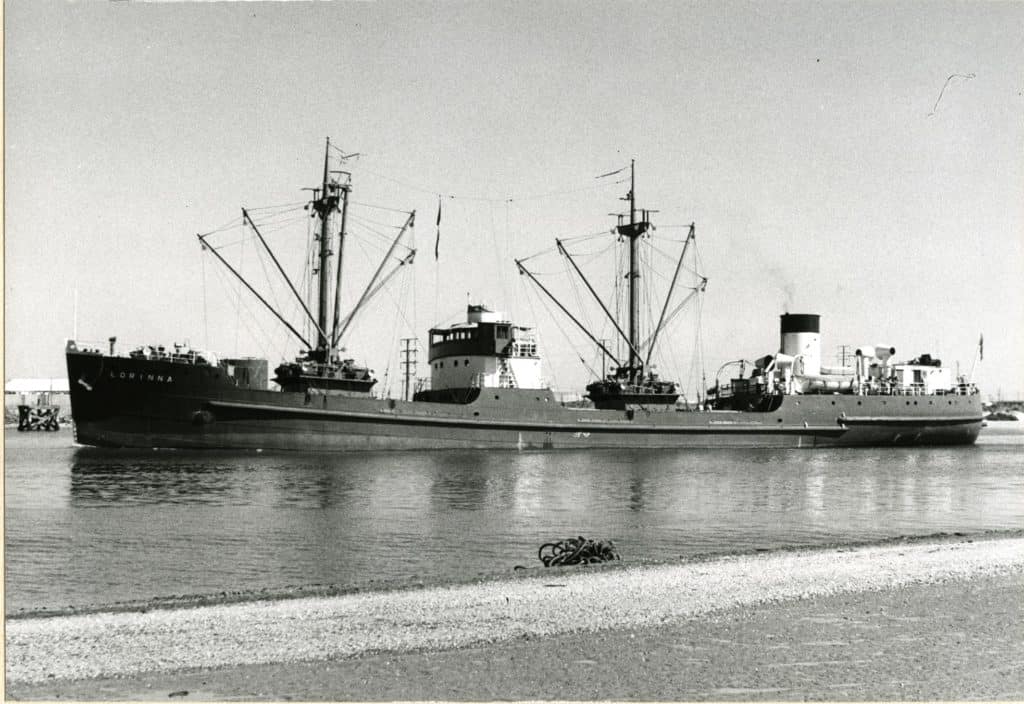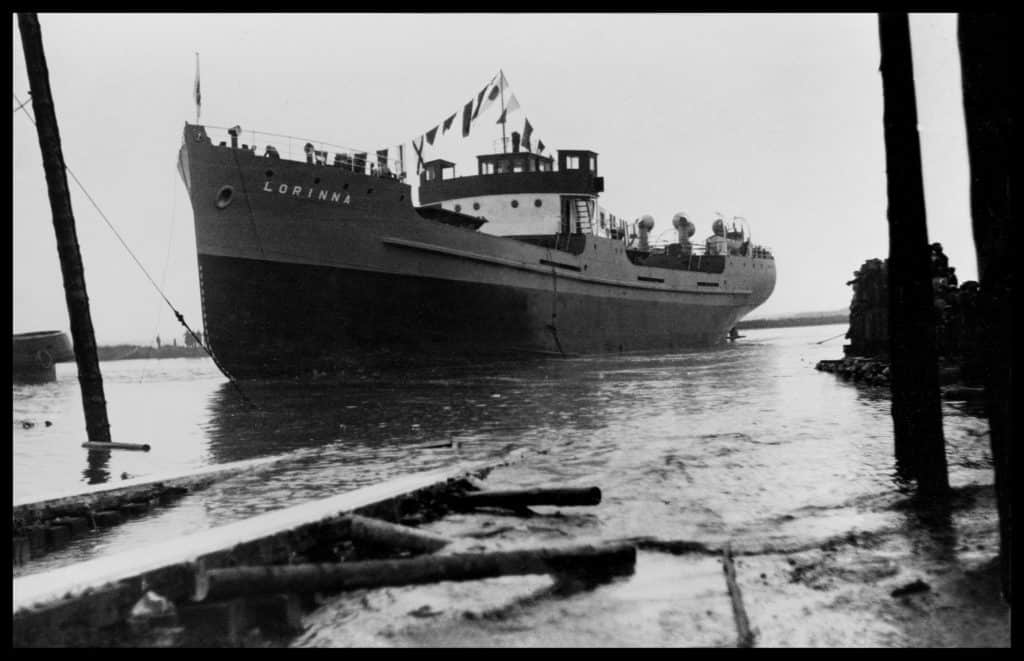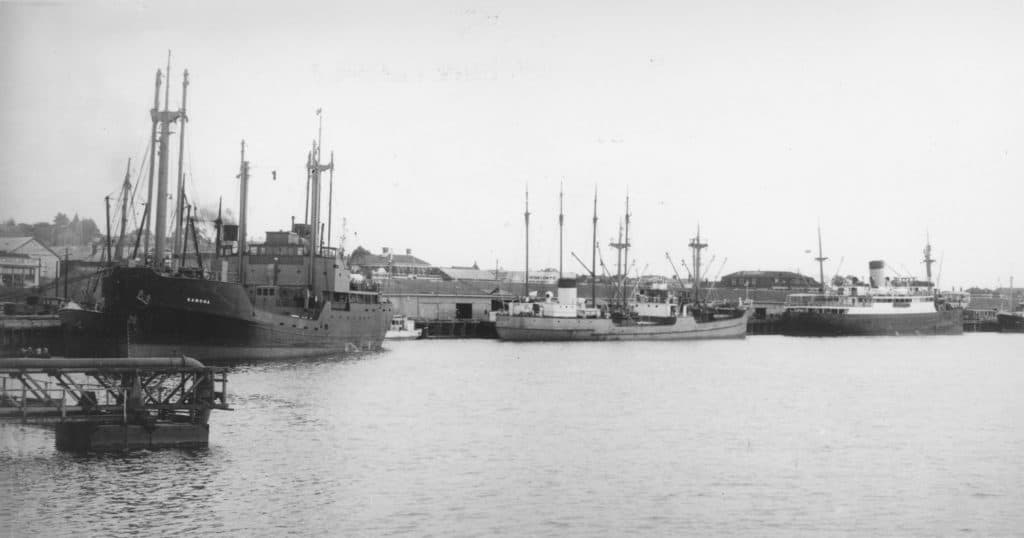Lorinna was built at Grangemouth Dockyard, Grangemouth in Scotland in 1937 for the Holyman Line. Before she was built a model of the ship was tested at the National Physical Laboratory in Teddington. A steel hulled diesel motor vessel, 1185 tons and 230 feet long, Lorinna was Holyman’s first diesel powered ship and was to be used on the line between Hobart, Launceston, North-West coast ports and Adelaide. Lorinna was only fitted-out for cargo as she was to carry timber and was not to take passengers.

Lorinna was able to carry 1600 tons and had a speed of 12 knots. Her cargo handling was the most modern then available, and included eight electric winches for the speedy loading and unloading of cargo. Captain E. J. Bull, who brought Lorinna to Australia on her maiden voyage, said in an interview that she was the latest word in modern electrical equipment.
During her time on the Tasmanian run Lorinna was captained by Elmer Malanot, an Austro-Hungarian former WWI U-Boat commander.

During the second world war Lorinna was commandeered by U.S. forces in the Small Ships Fleet. After the Japanese attacked Pearl Harbour in December 1942 they landed on islands in the Pacific, including New Guinea. This was too close to mainland Australia for comfort, however the Australian Army was fighting alongside the British in North Africa so it fell to General Douglas MacArthur to find a way to keep the area safe and retake New Guinea.
The Small Ships Section was formed, with the mission of delivering ammunition, medical supplies and perishable food to outlying bases that were not reachable by bigger ships. Procuring any serviceable craft available, the fleet was made up of vessels of all sizes, powered by motor or sail, and of any age.
Leased from Holyman and Sons from the 11th of November 1942, the Lorinna became the flagship of the Small Ships fleet and, like all vessels of the fleet, was outfitted with machine guns.
During 1942 and 1943 Lorinna took part in Operation Lilliput. She operated round trips that took her from Darwin to Cape Fourcroy, Sir Graham Moore Island, West Bay, Champagne Island and then back to Darwin, delivering supplies and troops.
On the 16th February 1944 while off Cape Cloucester Lorinna came under attack by a Japanese aircraft. Seven crew were killed and fourteen were wounded.
At the end of the war Lorinna was returned to Holyman and Sons and refitted. She was sold on to a Hong Kong company in 1961 and renamed, and after being badly damaged by fire in 1970 she was sold on and renamed two times, before finally being broken up at Gadani beach in 1979.

Written by Leah Johnson
References:
Bass Strait Maritime Centre file number 122
Gippsland Times, Monday 29th November 1937
The Mercury, Wednesday 2nd March 1938
Sunday Examiner, Sunday 22nd April 2007, page 14
Australian War Memorial, “The Motor Ship Lorinna of the Small Ships Section, United States Army Services,” www.awm.gov.au/collection
Northern Territory Library, “Lorinna M.V.,” www.ntlexhibit.nt.gov.au
Flotilla-Australia, “Australian Shipping Lines,” www.flotilla-australia.com
“Small Ships Section, Southwest Pacific Area of World War II,” Richard E. Killblane, www.transportation.army.mil/history/document

